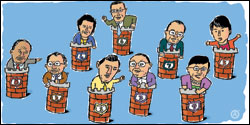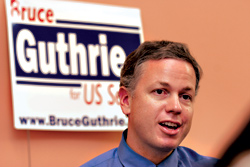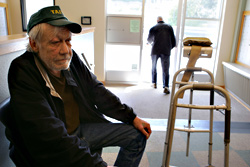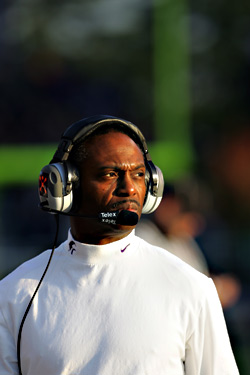Voter resentment won’t be measured only by the results of City Council races on Nov. 4. Seattleites also have a shot at changing the way the council is elected and, in theory at least, the way in which the city is governed. Charter Amendment 5, backed by Seattle neighborhood activists and the national Association of Community Organizations for Reform Now (ACORN), would change council representation from today’s nine seats elected at largeby all votersto nine representatives elected by geographic district. This would radically alter how the City Council legislates and, perhaps, how much political power it has relative to the mayor.
Today, each of the nine positions on council is elected citywidemeaning that council members Richard Conlin and Heidi Wills, for example, both serve the interests of middle-class citizens in Lake City, the downtown business elite, and lower-income and minority neighborhoods that predominate in the city’s south end. Amendment 5 would make all council positions elected by districts throughout the city beginning in 2005. If the measure passes, Lake City and adjoining neighborhoods would have a council member to call their own, and so would downtown and South Seattle residents.
AMENDMENT PROPONENTS say City Hall is beholden to special interests and grouse that most of the city’s capital expenditures go to downtown projects like the new City Hall, the new Seattle police headquarters, and the McCaw Hall opera house at Seattle Centeras opposed to, say, sidewalks in the city’s northern and southern neighborhoods. Also, they say that citizens potentially have to deal with nine council offices when trying to get something accomplished in their neighborhoods and that council races have become so expensivea candidate needs around $100,000 to run an effective citywide campaignthat it freezes out everyone but the well connected.
“It’s failed,” says John Wyble, a political consultant with Moxie Media. “Let’s go back to the way other cities do it.” Many large American cities such as New York and Chicago have a district elections system.
Opponents to the measure note that places like New York and Chicago historically are rife with so-called ward politicswhich encourages influence peddling and pork-barrel vote tradingand are no less riven by special interests. “An at-large council sets broad public policy and spreads resources over the whole city,” says former Seattle City Council member Jim Street, an amendment opponent. He says we need council members who are concerned about Seattle as a whole. What he foresees under a district system is a council so beholden to its members’ respective neighborhoods that no one on the council will have the broad policy vision required in a major city, especially when it comes to social services. Moreover, each council member would be busy making side deals with the mayor to get potholes filled and traffic lights erected, for example, in their districts. That would create the perfect environment for a Machiavellian mayor to play council members off one another and become a civic emperor. Says former council member Sue Donaldson: “Voters should separate their frustration with council from the structure. The structure isn’t broken.”
Donaldson says one advantage of the current system is that if a council member gives the cold shoulder to a citizen’s proposal, there are eight other council members to shop the idea to. “Under a district system, if the one person representing your area doesn’t appreciate your viewpoint, you have no else to address your issue,” she says.
It’s striking that there has been virtually no civic dialogue about the merits and demerits of the proposed charter amendment. Neither opponents nor proponents have money to run a campaign. That will leave it up to an electorate educated only by the official voters’ guide and sporadic news coverage. “The less people know about a proposal, the more likely they are to vote against it,” says Christian Sinderman, a political consultant well versed in local initiatives. “That’s the conventional wisdom. On the other hand, there’s a whole lot of frustration out there with the status quo.”
SAYS BLAIR BUTTERWORTH, a political consultant: “Whatever problems City Council has, the answer does not lie in districts. I’m not confident at all that this thing is going to be defeated. The electorate is very squirrelly. And it may be people make a kind of statement without thinking through the implications of no one having to think about the general good of the city.”








